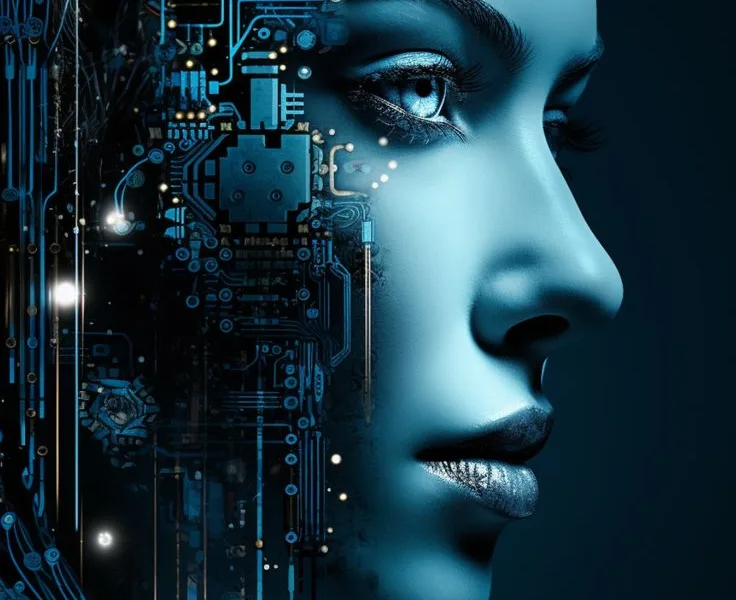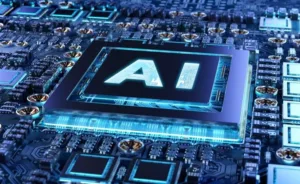AI: Friend or foe. Find out the history of AI and impact of AI in future.
- AI: Friend or foe:
- The Early Origins of Artificial Intelligence:
- From Fiction to Reality: The Evolution of AI
- The Foundation: Dartmouth College and the Birth of AI Research
- The Role of Alan Turing and His Test in Advancing AI
- AI: The Dark Ages and the Dawn of a New Era
- Current Impact and Future Implications of AI Technology
- Embracing the Potential of AI Responsibly
AI: Friend or foe:
AI, or artificial intelligence, is a concept that has gained significant importance in the modern era. It refers to the development of computer systems capable of performing tasks that would typically require human intelligence, such as speech recognition, problem-solving, and decision-making. With the rapid advancement of technology, AI has become increasingly prevalent in our daily lives, from voice assistants on our smartphones to autonomous vehicles.
The question arises: Is AI a friend or a foe? This debate stems from the potential impact that AI can have on various aspects of society. On one hand, AI offers numerous benefits, such as increased efficiency, improved healthcare outcomes, and enhanced productivity. On the other hand, concerns have been raised about job displacement, privacy issues, and the potential for misuse of AI technology.
To assess whether AI is a friend or a foe, it is crucial to understand its history and consider its potential impact on the future. By exploring the origins and evolution of AI, we can gain insights into its capabilities and limitations. Additionally, examining the current impact of AI across different sectors provides us with real-world examples of its applications and benefits. Furthermore, we must consider the ethical implications and future implications of AI as it continues to advance.
In order to navigate the complexities surrounding AI, this article aims to delve into its history and discuss both the positive and negative aspects of this technology. By doing so, we can better understand the role AI plays in our lives and how we can embrace its potential responsibly.
The Early Origins of Artificial Intelligence:
The early origins of artificial intelligence can be traced back to ancient myths and the philosophical musings of early thinkers. These ancient stories and ideas laid the groundwork for the concept of artificial beings with intelligence.
If you want to know more about AI, then read the book: Click here to visit amazon
Exploring Ancient Myths and Cultural References
Ancient Greek Mythology: Hephaestus and Automatons
In ancient Greek mythology, there are stories of Hephaestus, the god of craftsmen, creating mechanical servants called automatons to assist him.
Jewish Mystical Tradition: Golems
The Jewish mystical tradition known as the Kabbalah speaks of golems, humanoid creatures made from clay and brought to life through magic.
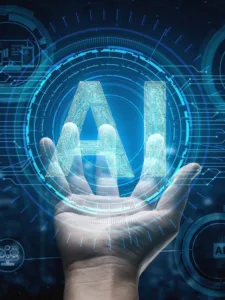
Hindu Mythology: Yantras
In Hindu mythology, there are tales of beings called Yantras, which were mechanical devices imbued with intelligence and capable of performing complex tasks.
Examining the Attempts of Early Philosophers
Aristotle’s Speculations on Machine Imitation
The philosopher Aristotle speculated about the possibility of creating machines that could imitate human actions.
Mozi’s Descriptions of Various Machines
The Chinese philosopher Mozi wrote about machines that could perform various tasks such as playing musical instruments.
Al-Jazari’s Automated Machines
The Islamic polymath Al-Jazari designed and built automated machines in the 13th century, including a humanoid flautist.
These early thinkers were fascinated by the idea of creating artificial beings that could mimic human intelligence and behavior. They believed that by understanding and replicating the mechanisms behind human cognition, they could create machines that would exhibit similar abilities.
These early concepts laid the foundation for later developments in artificial intelligence. While these ideas may seem primitive compared to modern AI technology, they represent the first steps towards understanding and harnessing the power of intelligent machines.
By exploring ancient myths and studying the writings of early philosophers, we gain a deeper appreciation for the long history and cultural significance of artificial intelligence. These historical references provide valuable insights into humanity’s fascination with creating intelligent machines and set the stage for further developments in AI research.
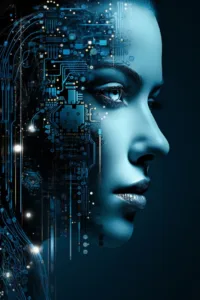
From Fiction to Reality: The Evolution of AI
Tracing the portrayal of AI in different eras of storytelling provides a fascinating insight into the evolution of artificial intelligence from mythical precursors to its depiction in modern science fiction literature and films.
1. Mythical Precursors to AI:
- Greek Mythology: Ancient Greek myths feature tales of mechanical beings created by Hephaestus, such as Talos, a giant bronze automaton tasked with protecting the island of Crete.
- Medieval Legends: The concept of artificial beings endowed with intelligence is reflected in medieval European folklore, including stories of golems and homunculi crafted through alchemical processes.
2. Portrayal in Literature and Films:
- Early Modern Fiction: The theme of artificial beings gaining sentience is explored in works like Mary Shelley’s “Frankenstein,” where Dr. Frankenstein creates a sentient creature through scientific experimentation.
- Science Fiction Literature: Authors like Isaac Asimov and Philip K. Dick further popularized the portrayal of intelligent machines and their interaction with humans in thought-provoking narratives.
3. Depiction in Films:
- Golden Age Sci-Fi: The mid-20th century saw the rise of iconic sci-fi films such as “Metropolis” and “Forbidden Planet,” featuring advanced robots and sentient machines that challenged human dominance.
- Contemporary Cinema: Modern films like “Blade Runner,” “Ex Machina,” and “Her” continue to explore the ethical and existential implications of AI, blurring the lines between human and artificial consciousness.
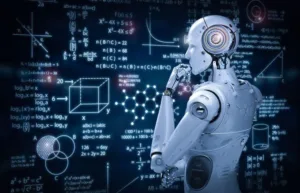
The evolving representation of AI in various forms of storytelling mirrors society’s changing perspectives on technology, consciousness, and the boundaries between humanity and machine. These narratives have not only entertained audiences but have also sparked philosophical discussions about the implications of creating intelligent entities.
The Foundation: Dartmouth College and the Birth of AI Research
To understand the history and impact of artificial intelligence (AI), we must look at the important role played by the Dartmouth College workshop in 1956. This workshop was a turning point as it led to the creation of the term “artificial intelligence” and officially established the field.
The Dartmouth College Workshop: A Gathering of Minds
During the summer of 1956, John McCarthy, Marvin Minsky, Nathaniel Rochester, and Claude Shannon organized a two-month-long conference at Dartmouth College. Their objective was clear – to explore the potential of building machines that could demonstrate intelligent behavior.
At that time, there was immense hope surrounding AI. Researchers believed they could make significant headway in developing machines capable of performing tasks that typically required human intelligence. The organizers aimed to attract scientists from diverse backgrounds like mathematics, neuroscience, psychology, and engineering to collaborate and advance AI research.
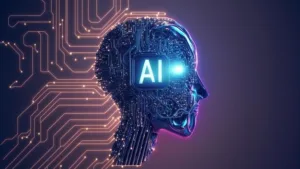
Building Blocks for AI: Collaboration and Vision
The Dartmouth College workshop laid the foundation for AI by bringing together leading experts from various fields. It provided an opportunity for researchers to share ideas, address challenges, and propose solutions. Most importantly, it emphasized the importance of interdisciplinary collaboration in achieving the common goal of creating intelligent machines.
One significant outcome of this workshop was the formal recognition of AI as an academic discipline. The term “artificial intelligence” was coined to describe the field dedicated to developing intelligent machines capable of learning, reasoning, and problem-solving.
From Workshop to Impact: The Journey Continues
While progress after the Dartmouth College workshop was slower than expected initially, it set in motion a series of events that shaped future advancements in AI research. Many attendees were inspired by this gathering to pursue careers in AI, leading to further exploration and innovation in the field.
The significance of the Dartmouth College workshop extends beyond its historical context. It not only established AI as a distinct discipline but also paved the way for breakthroughs in machine learning, natural language processing, computer vision, and other subfields of AI.
The Enduring Influence of the Dartmouth College Workshop
The impact of the Dartmouth College workshop can be seen in the ongoing efforts of researchers to push the boundaries of AI. Its influence is evident in the development of advanced AI systems like IBM’s Deep Blue and Google’s AlphaGo, which have achieved remarkable success in strategic games such as chess and Go.
In conclusion, the Dartmouth College workshop in 1956 played a critical role in the birth of AI research. By bringing together experts from different fields and establishing AI as an academic domain, this historic event laid the groundwork for our current understanding and application of artificial intelligence.
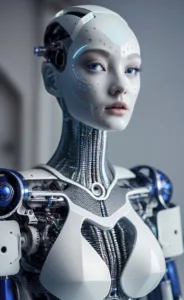
The Role of Alan Turing and His Test in Advancing AI
Alan Turing, a pioneering figure in computer science and mathematics, made significant contributions to the field of artificial intelligence (AI). His work laid the foundation for AI research and continues to influence the field to this day.
1. Alan Turing’s Paper: “Computing Machinery and Intelligence”
One of Turing’s most notable contributions was his 1950 paper titled “Computing Machinery and Intelligence.” In this paper, Turing introduced the concept of machine intelligence and proposed a test that would determine whether a machine can exhibit intelligent behavior that is indistinguishable from that of a human. This test, known as the Turing Test, became a fundamental benchmark for evaluating AI systems.
2. Understanding the Turing Test
The Turing Test involves an evaluator engaging in conversations with both a human and a machine through a computer interface. If the evaluator cannot consistently distinguish between the responses of the human and the machine, then the machine is said to have passed the test and demonstrated artificial intelligence.
3. Exploring Key Ideas in Turing’s Paper
Turing’s paper not only proposed the idea of intelligent machines but also explored fundamental questions about cognition and consciousness. He discussed how machines could mimic human thought processes by using rules and algorithms. This concept paved the way for developing AI systems that could reason, learn, and solve complex problems.
4. Impact of the Turing Test on AI Research
The Turing Test has had a profound impact on AI research. It has inspired researchers to develop natural language processing algorithms, machine learning techniques, and knowledge representation models that aim to create intelligent systems capable of passing the test. While passing the Turing Test remains an elusive goal for many AI researchers, it serves as an important benchmark for measuring progress in the field.
5. Beyond Theory: Turing’s Practical Contributions
Turing’s work also extended beyond theoretical concepts. During World War II, he played a critical role in breaking German codes using early computing machines. His efforts at Bletchley Park helped shorten the war and saved countless lives. Turing’s experience with code-breaking and his understanding of machine intelligence laid the groundwork for the development of early computers and the future of AI.
Alan Turing’s influential paper on machine intelligence and the creation of the Turing Test had a transformative impact on the field of artificial intelligence. His ideas continue to shape AI research and inspire advancements in creating intelligent machines. Turing’s contributions opened up new possibilities for AI, challenging researchers to push the boundaries of what machines can achieve.
AI: The Dark Ages and the Dawn of a New Era
The history of artificial intelligence (AI) is punctuated by periods of reduced interest and investment known as “AI winters.” These were times when the lofty promises of AI failed to materialize, leading to skepticism and decreased funding. The challenges and setbacks during these periods caused many to question the feasibility of achieving true machine intelligence. However, recent advancements have led to a resurgence of excitement and investment in the field, particularly in the 2020s.
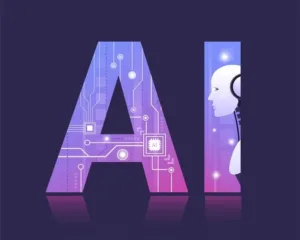
1. AI Winters
During these periods, there was a notable decline in research funding and public interest in AI due to unmet expectations and technological limitations. The inability to deliver on ambitious goals led to disillusionment and a temporary stagnation in progress.
2. Resurgence in the 2020s
In contrast to previous downturns, the 2020s marked a significant revival of interest in AI. This resurgence can be attributed to several factors:
- Technological Advancements: Breakthroughs in machine learning, neural networks, and computational power have enabled AI systems to tackle complex problems with unprecedented accuracy.
- Real-world Applications: AI has demonstrated its value across various industries, from healthcare and finance to transportation and entertainment. Its practical benefits have reignited enthusiasm for further exploration and innovation.
- Data-driven Insights: The abundance of data available for analysis has empowered AI algorithms to uncover valuable insights, driving its adoption in decision-making processes.
3. Future Outlook
As AI continues to evolve, its impact on society will become increasingly profound. Ethical considerations surrounding AI’s autonomy and decision-making capabilities will need careful navigation. Furthermore, discussions about the future of work in an AI-driven world are gaining prominence. It is imperative that stakeholders engage in thoughtful dialogue and responsible development practices to harness the potential of AI while mitigating potential risks.
The cyclical nature of AI’s historical trajectory underscores the complexity of achieving true artificial intelligence. However, each phase has contributed valuable lessons that have paved the way for ongoing advancements and new possibilities in the field.
Current Impact and Future Implications of AI Technology
The impact of AI technology is evident across various sectors, revolutionizing industries and shaping the future in profound ways. Here’s a closer look at the present-day influence of AI and its implications for the future:
Present-Day Influence Across Different Sectors
Healthcare
AI has significantly impacted healthcare by enabling advanced diagnostics, personalized treatment plans, and predictive analytics. For example, machine learning algorithms are used to analyze medical images for early detection of diseases, improving patient outcomes and reducing errors.
Finance
In the financial sector, AI is leveraged for fraud detection, algorithmic trading, and customer service chatbots. It has streamlined processes, enhanced security measures, and provided more personalized financial services to customers.
Transportation
The transportation industry has seen the integration of AI in autonomous vehicles, traffic management systems, and predictive maintenance. These advancements aim to improve safety, efficiency, and sustainability in urban mobility.
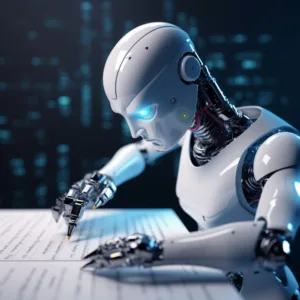
Potential Opportunities and Risks
As AI continues to advance, it presents both opportunities and risks for society:
- Opportunities: The ongoing development of AI holds the promise of solving complex challenges, such as climate change, healthcare disparities, and resource optimization. It has the potential to drive innovation across various domains, leading to improved quality of life and economic growth.
- Risks: Ethical concerns regarding privacy, bias in decision-making algorithms, and job displacement loom large as AI technologies become more ubiquitous. The future of work is also a subject of debate as automation could transform labor markets and require new skill sets for the workforce.
AI’s trajectory underscores the need for thoughtful consideration of its implications as we navigate towards an increasingly AI-driven future.
Embracing the Potential of AI Responsibly
Striking a Balance: Viewing AI as a Tool for Human Progress
When we consider the question of whether AI is a friend or a foe, it’s important to strike a balance between optimism and caution. AI has the potential to revolutionize our lives in countless ways, from improving healthcare outcomes to enhancing transportation systems. However, it’s crucial to view AI as a tool for human progress rather than a replacement for human intelligence.
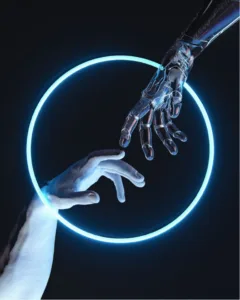
Encouraging readers to embrace the potential of AI while advocating for responsible development and deployment practices
To ensure that AI remains a friend rather than a foe, it is essential to prioritize responsible development and deployment practices. This includes:
- Ethical considerations: As AI becomes increasingly integrated into our daily lives, we must address ethical concerns such as privacy, bias, and transparency. It is crucial to establish guidelines and regulations that protect individuals’ rights and prevent discriminatory practices.
- Collaboration between humans and machines: Rather than fearing the rise of AI, we should focus on fostering collaboration between humans and machines. By leveraging the unique capabilities of both, we can achieve outcomes that surpass what either can achieve alone.
- Continuous learning and adaptation: As AI evolves, it is essential for individuals and organizations to engage in continuous learning and adaptation. This ensures that we stay abreast of the latest advancements in AI technology and are equipped to make informed decisions about its applications.
Hope you all enjoyed the blog, for update in bengali, Visit: https://taazakhobor.in/
More read:
https://deepblogs.net/dark-web-what-is-it-99-99-people-dont-know/
https://deepblogs.net/sunny-leone-biography/
Pakistani horrible murder case
How to prepare for Neet Exam from class 9. Score Guaranteed 701+ score!!!
How to make money by typing at home. Earn 1000-2000 rupees/day just by typing!!!
How to start a gaming channel on Youtube. Because gamers are the next billionaires.
How to earn money by blogging in 2024? Must Read to Earn Lakhs Of Money.
